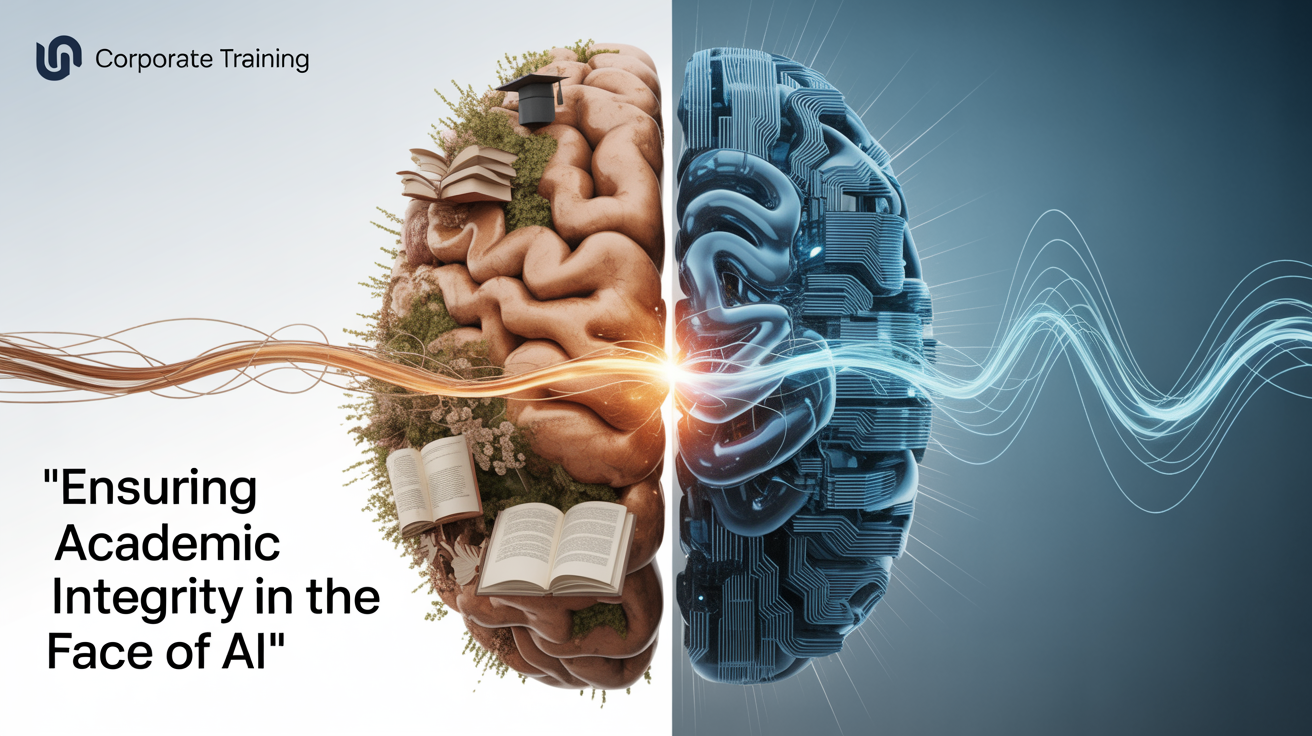
Artificial intelligence is changing the game in enterprise learning and development (L&D). From content generation to personalized training recommendations, AI is unlocking new levels of efficiency and scalability. However, with this rapid transformation comes a significant challenge: ensuring academic integrity in the face of AI.
As more organizations integrate AI into their training ecosystems, it’s critical for L&D leaders to understand both the capabilities and the risks. Ensuring the security of your content and the integrity of learner outcomes must remain top priorities. In this article, we’ll explore how AI is impacting content creation, the potential pitfalls related to security and authenticity, and best practices for maintaining trust and integrity within your learning programs.
AI offers transformative potential in the world of corporate learning. Tools like generative AI and machine learning can:
These capabilities reduce manual workloads, accelerate time-to-delivery, and enhance learner engagement. However, these same benefits can also open the door to serious vulnerabilities if not carefully managed.
AI-generated content is only as good as the data it’s trained on and often lacks the human judgment required to vet accuracy, tone, and context. As L&D teams turn to generative tools like ChatGPT, Claude, or custom AI engines to produce training content they face real questions about:
These risks can jeopardize the credibility of your learning programs and even expose your organization to compliance violations.
Creating high-quality, accurate, and secure training content with the help of AI starts with human governance. Here are key strategies to ensure academic integrity:
Define how AI should (and should not) be used in course design and learner support. Train your instructional designers on the ethical and secure use of AI. Provide clear guidelines for version control, content review, and data sourcing.
AI should augment your team—not replace it. Always include a human review layer, or two, to validate and revise AI-generated content. Use subject matter experts to fact-check material and ensure content aligns with your company’s voice and learning objectives.
Choose AI tools that offer enterprise-grade security and data privacy compliance. Avoid free or unvetted tools that may store and reuse your proprietary training content or learner data without your consent.
Incorporate plagiarism detection software to scan AI-generated content before publishing. Encourage originality in assessments by using scenario-based questions, simulations, or discussion prompts that AI tools struggle to answer convincingly.
If you’re using AI to analyze learner behavior or personalize experiences, ensure that data is anonymized and encrypted. Be transparent about how learner data is used and implement strict access controls with clear privacy data policies.
Extended enterprise training spans employees, partners, franchisees, resellers, and customers—each with unique learning needs. As AI becomes embedded in these training pathways, the stakes are even higher:
With a platform like LatitudeLearning, organizations can centralize content governance, secure learner data, and maintain a consistent standard of academic integrity—regardless of who is learning, where, or how.
AI is not a passing trend—it’s a foundational shift. As such, your L&D strategy must evolve alongside it. Here’s how to get started:
Artificial intelligence is reshaping enterprise training—but integrity must remain at its core. Training and development executives are in a unique position to set the tone for ethical AI integration. By being proactive we can effectively harness the benefits of AI without compromising trust, quality, security, or credibility.
As AI becomes more embedded in our training ecosystems, the most human values—honesty, accountability, curiosity, and integrity—must lead the way.
Curious how AI is impacting learning and development at your organization? We’d love to hear your perspective. Contact us to start a conversation about the challenges—and opportunities—AI brings to training and academic integrity in 2025.